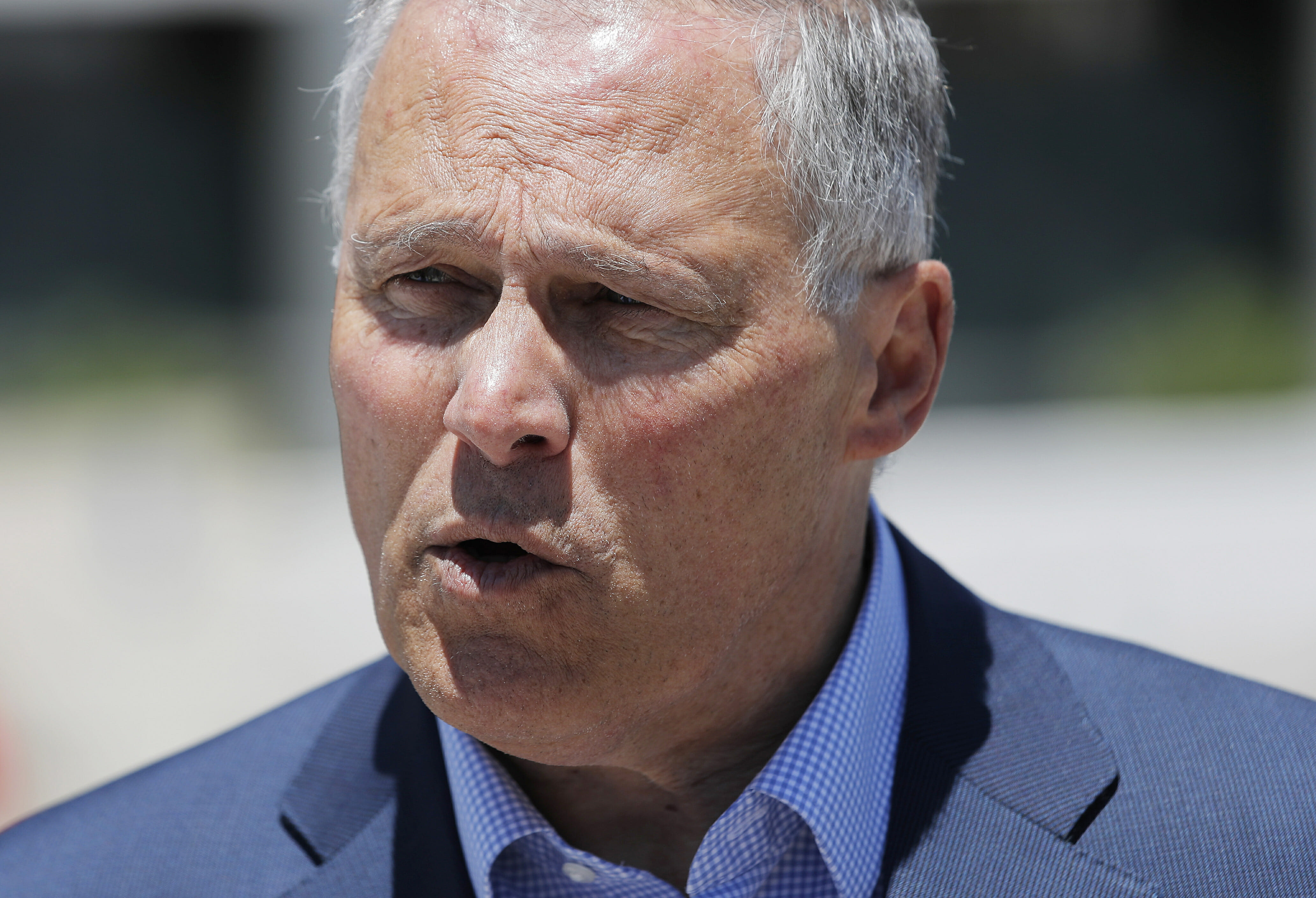
2020 hopeful Jay Inslee calls for pathway to citizenship
Democratic presidential hopeful Jay Inslee is calling for a pathway to citizenship for people in the country illegally and raising refugee limits to historic levels.
The Washington governor also calls on Congress to limit presidential prerogatives over immigration policy, curbing the kinds of powers President Donald Trump has used to sharply limit refugee access and to slow the asylum process.
Those ideas are part of wide-ranging immigration proposals Inslee unveiled Friday, as he drew sharp contrasts with Trump on legal and illegal immigration.
“America’s character is defined by its openness to those who come here seeking opportunity, asylum or refuge,” the Inslee campaign wrote in its policy outline, adding that the nation’s “success depends on our ability to welcome and include immigrants into our national life.”
The governor’s policy paper says the U.S. immigration system was “fundamentally broken” before Trump took office, but argues that the president has made it worse with rhetoric and policies that drive migrants to the U.S. in desperation, thus “creating the crisis at the border.”
Inslee further argues that increasing foreign aid and focusing on combating climate change are key aspects of reducing the wave of migrants seeking legal asylum or crossing the border illegally from Mexico, Central America and South America.
Climate policy is the centerpiece of Inslee’s presidential bid.
Inslee notes that in his home state, one out of seven residents is an immigrant, and he highlights that he was among the Democratic governors who immediately denounced Trump’s ban on Muslim immigrants.
All of the two dozen Democratic presidential candidates broadly oppose Trump’s immigration priorities, particularly his proposed wall on the U.S.-Mexico border. Still only Inslee, former Obama Cabinet member Julian Castro and former Rep. Beto O’Rourke have offered fully developed plans for overhauling immigration law and enforcement.
Castro notably went beyond his two competitors in proposing to decriminalize all border crossings that are now illegal. Inslee does pledges to withdraw U.S. military from the Mexican border, while ending “mandatory detention” policies for those who apprehended on civil immigration violations.
O’Rourke, meanwhile, set an ambitious goal to legalize within the first 100 days of his administration the estimated 11 million residents who are in the country illegally. Inslee states the goal of offering that group a path to citizenship, but does not attach the explicit deadline.
Inslee pledges that among his first actions as president, he’d block spending on Trump’s border wall, while rescinding Trump’s executive orders attempting to ban entrants from Muslim countries and block federal funding to so-called “Sanctuary Cities” that don’t assist federal immigration enforcement efforts.
Meanwhile, Inslee pledges to meet and exceed the Obama’s administration’s last annual refugee target of 110,000 admissions, calling that a “minimum standard for the U.S. to reclaim its historic leadership role” internationally.
For the 11 million immigrants already in the U.S. illegally, Inslee calls for immediately reinstating the Obama-era “Dreamers” program for the estimated 800,000 residents who were brought to the country as children.
For the rest, he promises “an objective and timely” review, offering a path to citizenship for those who pass a background check, pay taxes and take accredited courses in English and civics. That’s in line with a bipartisan overhaul that cleared the Senate in 2013, but never got a hearing in the House that was then controlled by Republicans.
Inslee calls for “accelerating and completing the process” of reuniting the migrant children and adult relatives who were separated under the Trump administration’s now-ended “family separation” policy. Inslee does not detail how his administration would do that.
The governor chides the Trump administration for using “fear and cruelty” to deter migrants from some Central American nations. Inslee calls for restoring about $450 million in assistance for Honduras, Guatemala and El Salvador, sometimes collectively called “the Northern Triangle.” The aid, Inslee says, helps those nations address “the root-causes of large-scale family migration to the U.S.” that has spiked during Trump’s term.
He adds a call to restore a program — the Central American Minors program — that would use international offices to process would-be immigrants from Mexico and the Northern Triangle in their home countries, potentially discouraging those residents from making the long and dangerous trek to the U.S. border.
___
Follow Barrow on Twitter at https://twitter.com/BillBarrowAP .
The Western Journal has not reviewed this Associated Press story prior to publication. Therefore, it may contain editorial bias or may in some other way not meet our normal editorial standards. It is provided to our readers as a service from The Western Journal.
Truth and Accuracy
We are committed to truth and accuracy in all of our journalism. Read our editorial standards.
Advertise with The Western Journal and reach millions of highly engaged readers, while supporting our work. Advertise Today.












